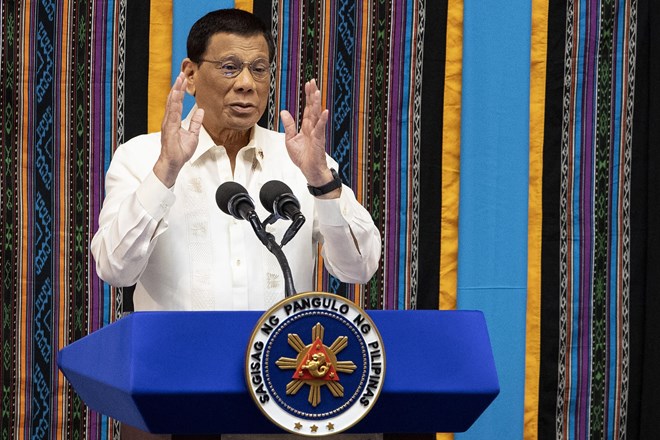
President Rodrigo Duterte has signed a law to create the Philippine Space Agency (PhilSA).

Philippine
President Rodrigo Duterte (Photo: AFP/VNA)
Duterte
stressed the country needs a coherent and unified strategy for space
development and utilisation to keep up with other nations in space science and
technology.
Under the law, the PhilSA will be the central government agency that addresses
all national issues and activities related to space science and technology.
The agency will also be the primary policy, planning, coordination,
implementation and administrative entity to develop and promote the national
space programme in line with the Philippine Space Policy.
The Philippine Space Policy, also established under the new law, will serve as
the country’s primary strategic roadmap to become a space-capable and
space-faring nation within the next decade.
The country's space programme will focus on the development of space
technologies for national security, hazard management and climate studies, space
research and development, space industry capacity building, space education and
awareness, and international cooperation.
The law also creates the Philippine Space Council (PSC), which will be headed
by the president.
Source: VNA
The first summit between the European Union (EU) and the Gulf Cooperation Council (GCC) in Brussels, Belgium, marked an important step forward in their bilateral relations.
The 45th General Assembly of the ASEAN Inter-Parliamentary Assembly (AIPA-45) opened in Vientiane on October 19.
Many countries are grappling with rapidly aging population. As population aging becomes an irreversible global trend with significant impacts on economic and social sectors, nations face the urgent task of creating flexible policies to adapt to and make the most of this trend to build prosperous and sustainable societies.
With a series of stimulus measures, the world tourism industry is on the way to recovery as before the COVID-19 pandemic broke out. Facing the opportunity to take off, the "smokeless industry” is expected to strongly contribute to global economic growth while promoting potential and cohesion, contributing to peace and sustainable development.
The danger from the COVID-19 pandemic is still latent, threatening people’s health and lives in the context that the immunity provided from the COVID-19 vaccine has decreased. Many other dangerous diseases are also likely to break out when the global vaccination rate slows down, due to inequality in access to health services, vaccine hesitancy, and consequences of economic recession.
The Association of Southeast Asian Nations (ASEAN) is witnessing a rise in the sales of electric vehicles (EVs) in Vietnam, Malaysia and Indonesia, according to Maybank Investment Bank Research (Maybank IB Research).



